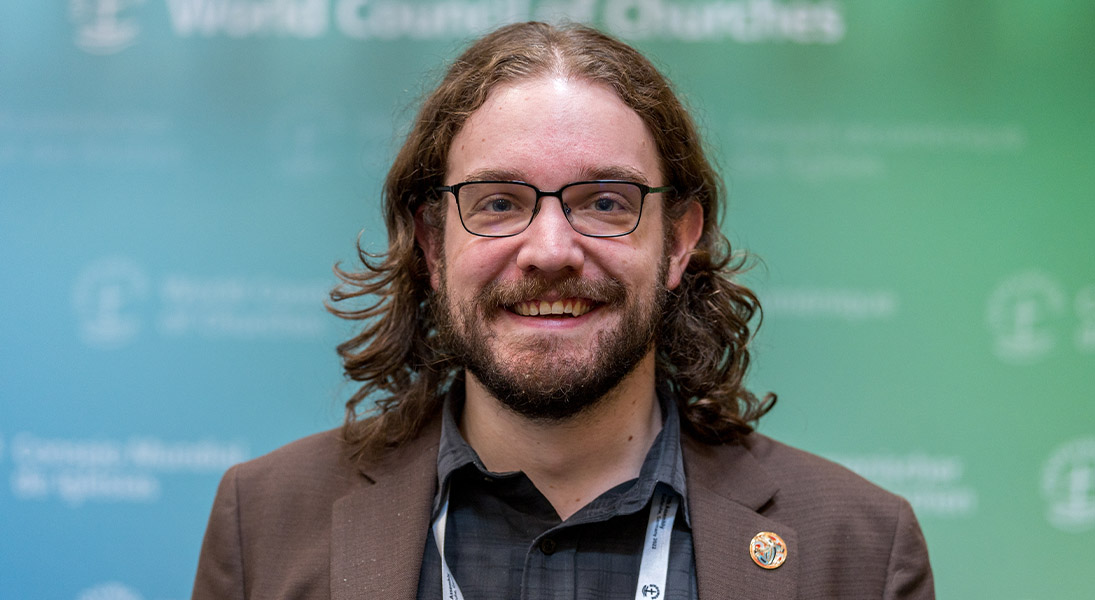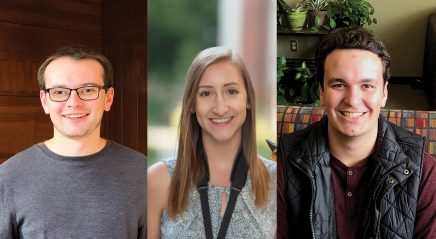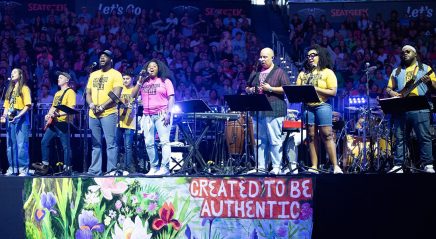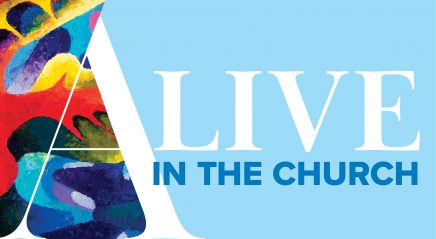Young-adult and disability advocate John Christensen has been part of the ELCA for longer than he can remember—both his parents are Lutheran pastors. Yet he keeps finding new ways to get involved, grow as a leader and strengthen his community. He has participated in multiple ministries for young adults. After each experience he asks, “OK, what’s next? How do I stay involved? Where else can I go? What else can I do? How do I turn this into a full, lifelong career?” he said.
In 2022 and 2023—after a 30-month wait due to the COVID-19 pandemic—Christensen participated in the Young Adults in Global Mission (YAGM) program. Through YAGM, Christensen served as a community volunteer at a church in Wolverhampton, England. He became embedded in the local community as well as a community of volunteers from across continents and seasons. The organization that placed Christensen in this role has been a YAGM partner for 15 years, so he has met some of the volunteers that came before him and others who came after him, continuing the work he did.
That volunteer community led Christensen to the next chapter of his career. At a YAGM job fair, he learned about the ELCA’s new Young Adult Vocational Fellowship program, which gives young adults the opportunity to explore employment that is meaningful and empowering and that reflects the values of their faith. Specifically, Christensen learned about a new fellowship position: project officer for disability and mental health advocacy at the World Council of Churches (WCC), a worldwide ecumenical fellowship of churches that work together for unity, justice and peace. Christensen felt the Holy Spirit guiding him on his vocational journey. When he heard about the role, he said, “It’s like you had asked me to write my own job description.”
“OK, what’s next? How do I stay involved? Where else can I go? What else can I do?”
In his current role at the WCC, Christensen works to connect disability advocacy and mental health advocacy within the church. He is using both his professional communications skills and his personal experience as a person living with myelomeningocele spina bifida, which affects his lower spine and mobility. Christensen believes that the issue of mental health is important to the work and well-being of our faith community, and that it will only get more important. He feels it’s impossible to talk about climate change, water, poverty or any of the other issues we’re confronting as a church without talking about the underlying issue of mental health. “And if you’re talking about mental health,” he said, “you should be talking about disability.”
Christensen’s fellowship has also given him the opportunity to connect with the wider community of young adults in the ELCA, and with a global network of young-adult Lutheran leaders making an impact around the world. In the past year, Christensen has participated in ecumenical events in Africa, Asia and South America, as well as the United Nations General Assembly in New York. He also attended the 2024 ELCA Youth Gathering in New Orleans, where and a team from the WCC led workshops focused on the intersections of mental health and youth in the church. For Christensen, who grew up sometimes feeling as if he were the only young person in his rural congregations, the most powerful part of the experience was “just getting to see the fact that there are tens of thousands of young people in the ELCA” alongside him.
He believes that such intergenerational work is crucial to the future of our church. “The more we come together, the more we can do,” he said.








